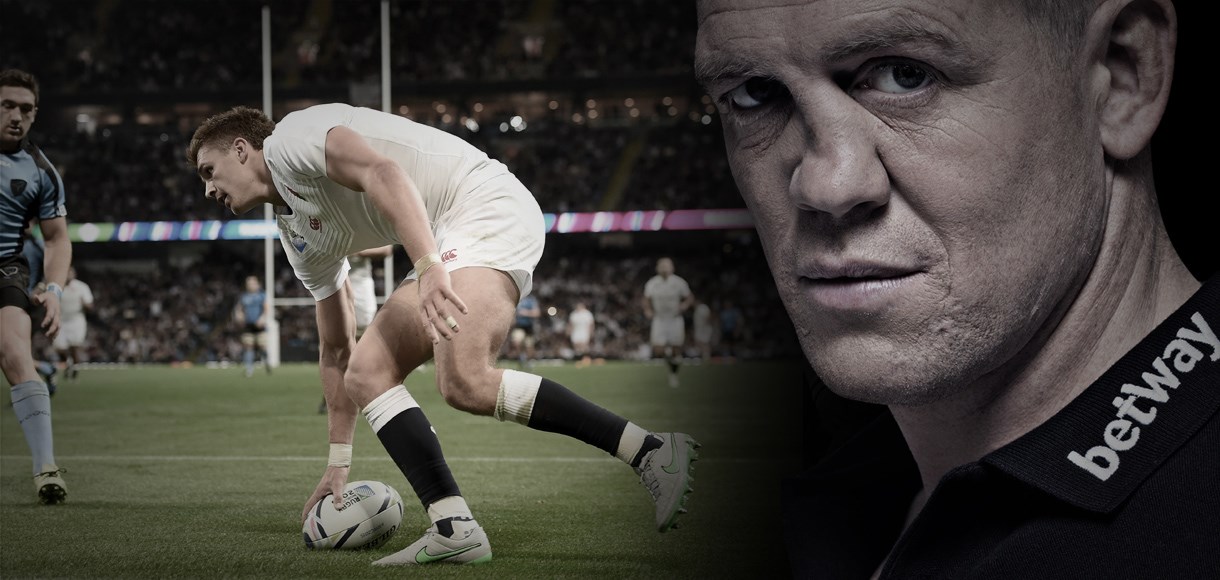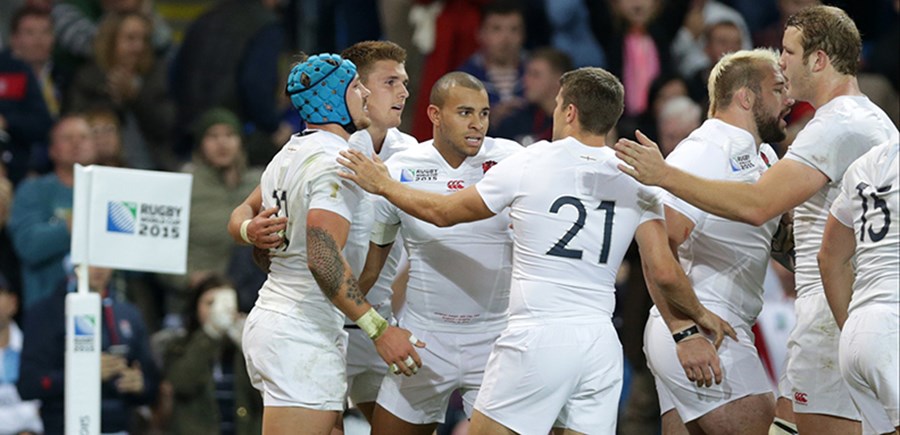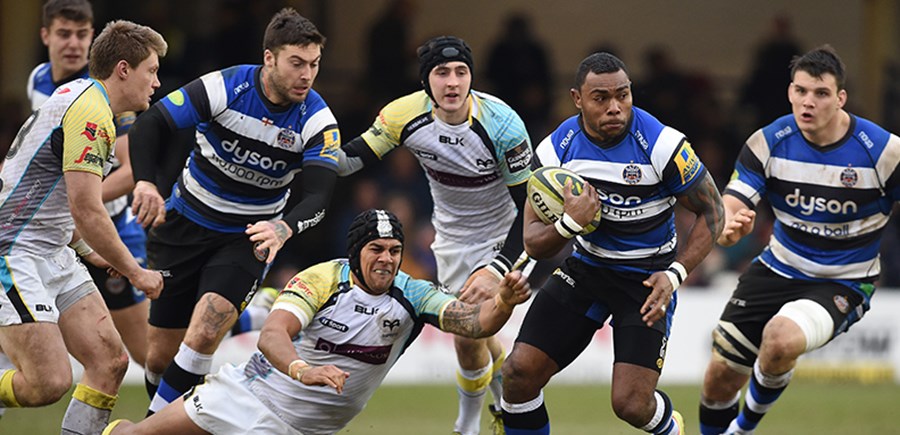Mike Tindall: England must make their mind up which way to go with their midfield

The World Cup winner and Betway ambassador reveals what this tournament has taught us about England's future direction
It was hard to take many lessons from England’s victory over Uruguay on Saturday, given that it was a dead rubber game against a side they were expected to overcome comfortably.
Perhaps the main thing it revealed was that we will probably be talking about that decision not to kick for the posts against Wales for many years to come.
As expected, we piled on the points once we found our cohesion in the second half – and that bonus point win would have been enough to qualify had we managed to share the points with Wales.
It is a massive shame, but it is something that England have got to learn from by dusting themselves off and looking at those poor ten-minute spells that shaped their World Cup.
Whether Stuart Lancaster will be given the chance to turn it around depends entirely on how his meetings with the RFU go over the coming days and weeks, but personally I would like to see him state his case more forcefully.
It is one thing to be pragmatic and wait to see what happens, but I have not yet actually heard him come out and declare that he wants to be coach in 2019 and prove that all the work he has done over the last few years has not been in vain.
I hope that we see that in the next phase when the rawness of what happened has subsided a little bit.
England have got a settled group of players in terms of the 50 or so who took part in the training camp before the World Cup and if they can stick together as a squad then I still believe that there is a core there that can deliver for England in the future.  Everybody is questioning Lancaster’s consistency in selection, but this World Cup has provided him with some valuable lessons in the direction that England need to go.
Everybody is questioning Lancaster’s consistency in selection, but this World Cup has provided him with some valuable lessons in the direction that England need to go.
For me, it certainly became clear during the tournament who should form that pivotal 8-9-10 axis going forward with Billy Vunipola staking his claim, Ben Youngs performing impressively when fully fit and George Ford proving he is the guy who can take us forward at fly-half.
The only way that Ford will develop the understanding that you want him to gain is by playing in those high-pressure matches.
If the coaches feel there are areas where perhaps he is a little lacking it is up to them to spend more time with him during the season to work on them rather than dropping him altogether.
As for the midfield, the options are certainly there, but consistency is key in choosing two or three guys who you can build around. You have got to stick with it and give them time to develop.
When England moved Henry Slade to inside centre on Saturday and put Jonathan Joseph on alongside him it looked like a nice combination with some real potential.
In the midfield, balance and consistency are key. England have multiple ways to go here with Slade being a real option, as is Owen Farrell, and it is not as though Luther Burrell has done anything wrong.
It is also important that England find a second 13 behind Joseph who can play in a similar way in order to get that consistency, rather than completely remodelling their midfield in the event of injury.
Manu Tuilagi is a strong option in that regard if he can get back to being fit and healthy, as is Elliot Daly with the things he has done for Wasps.
If the Bath backline continue to play the same exciting, attacking rugby as a unit under Mike Ford that they did last year then there is no reason why the likes of Kyle Eastmond, Matt Banahan and Semesa Rokoduguni cannot also force their way into contention.  Lancaster has got the culture right off the pitch, now England have to develop their winning mentality on it.
Lancaster has got the culture right off the pitch, now England have to develop their winning mentality on it.
Even after being knocked out of the 1999 World Cup there was still plenty of belief in the team.
I have always maintained that it was only our away win 27-22 to South Africa in Bloemfontein that was the firecracker for us in terms of giving us the confidence to win regularly against Southern Hemisphere sides – and this England team need a similar result to generate some momentum.
As for looking at the longer term, it is the smaller nations who have done so well at this World Cup that could provide the key in developing the next generation of players.
The likes of Japan, Romania and Georgia have all earned the right to more regular fixtures against top tier countries in order to provide extra exposure and help strengthen their domestic rugby back home.
Although talk of incorporating them into tournaments like the Six Nations may be a little premature, we ought to be sending different sides from the Saxons to the first team on tour or start to include them in our Autumn games.
That way we can both test our players against increasingly strong outfits and also help to grow the professional game so that the gap between established countires and smaller nations continues to close.
England may be out, but this World Cup has still been a massive success and there is still plenty more excitement to come.



































